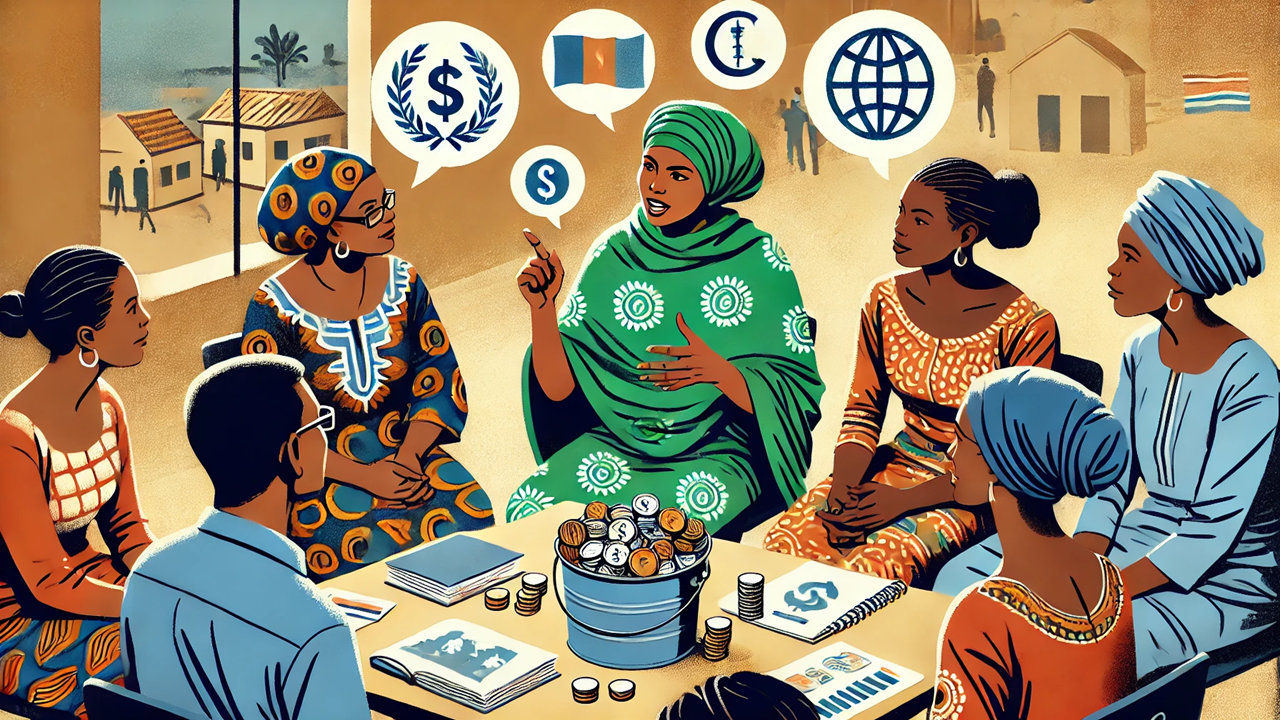Empowering Women through Social Protection: Key Lessons from Africa
A report by the Africa Gender Innovation Lab (GIL), Top Policy Lessons on Social Protection, reveals the importance of women-focused social protection programs in Sub-Saharan Africa. It outlines the benefits of multi-faceted economic inclusion and public works programs, emphasizing the need to address gender norms and integrate climate resilience strategies. With a focus on closing gender gaps in earnings, productivity, and agency, the report demonstrates how targeted interventions can transform the lives of vulnerable women, particularly in fragile contexts.

In many parts of Sub-Saharan Africa, women stand at the crossroads of poverty and vulnerability. Overrepresented among the poorest and most economically fragile, they often bear the brunt of economic insecurity, driven by care responsibilities and entrenched gender norms that limit their opportunities. A recent report by the Africa Gender Innovation Lab (GIL) sheds light on how social protection programs can play a pivotal role in transforming the economic realities of these women.
The report, titled GIL Top Policy Lessons on Social Protection, provides a comprehensive overview of key strategies that have proven effective in enhancing the economic well-being of women in Africa. It also highlights critical lessons learned from programs that have fallen short, pointing the way toward more effective interventions in the future.
A Comprehensive Approach to Social Protection
The report argues that a holistic, multi-faceted approach to social protection is essential for reaching the most economically disadvantaged women. Economic inclusion programs that combine cash transfers with additional support mechanisms—such as entrepreneurship training, savings promotion, and psychosocial support—have shown promising results.
For instance, the Sahel Adaptive Social Protection Program (ASP) has been a game-changer in the region, addressing chronic poverty and food insecurity through a combination of cash transfers and resilience-building initiatives. Evaluations of this program have demonstrated its success in boosting women's business revenues, household consumption, and overall food security, especially when psychosocial support was integrated into the package.
In Niger, a study comparing different program packages found that women receiving a combination of coaching, savings group support, and a one-time cash grant experienced significant improvements in their economic outcomes. This comprehensive support enabled them to diversify their economic activities and increase their household resilience to economic shocks. Similar positive outcomes were observed in programs in Nigeria and Zambia, where bundled interventions increased household income, food security, and mental well-being among women.
Public Works Programs: A Path to Empowerment
The report also highlights the critical role of labor-intensive public works programs (PWP) in fragile contexts, particularly in countries like the Central African Republic and the Democratic Republic of Congo. These programs, often government-funded, provide temporary employment while improving public infrastructure. For women, these opportunities can be life-changing.
In the Central African Republic, the World Bank’s Londö Project revealed that participation in PWPs led to sustained increases in monthly earnings, productive asset ownership, and economic activity for both men and women. However, the report also noted a gendered difference in outcomes: while men’s mobility improved as a result of the program, women did not experience the same benefits, highlighting the need to address specific barriers like access to transportation or skills such as bicycle riding.
Childcare provisions within public works programs were found to be a crucial factor in increasing women’s participation. In Burkina Faso, a mobile crèche system allowed mothers to work while ensuring their children were cared for nearby. This not only tripled the rate of childcare usage but also significantly boosted women’s labor participation and overall psychological well-being.
Addressing Social Norms and Psychosocial Barriers
One of the key insights from the GIL report is the importance of addressing social norms and psychosocial barriers that often limit the effectiveness of social protection programs. In many African communities, traditional norms and household dynamics can prevent women from fully benefiting from economic inclusion initiatives.
To tackle this, several programs have integrated community sensitization efforts. In Niger, for example, program participants, along with local leaders and family members, were invited to engage in discussions around social norms and aspirations. This helped shift community attitudes and increase support for women’s participation in economic activities.
Moreover, psychosocial and life skills training have been critical components of several programs. Evidence from across 17 African countries shows that interpersonal and socio-emotional skills are closely linked to higher earnings, particularly for women. By incorporating these elements into social protection initiatives, programs can better equip women to navigate both economic and personal challenges.
Climate Resilience and Future Directions
Looking forward, the report emphasizes that social protection programs must adapt to the growing risks posed by climate change. Women in vulnerable communities are often disproportionately affected by environmental shocks, which can erode their already limited economic security. The Sahel Adaptive Social Protection Program offers a model for integrating climate resilience into social protection, by helping households diversify livelihoods and build skills that enhance their adaptive capacity.
The findings from GIL Top Policy Lessons on Social Protection offer valuable insights into the design of future social protection initiatives. By taking a multi-faceted approach that combines economic support with attention to social norms, psychosocial training, and climate resilience, governments and development organizations can make significant strides in empowering women and reducing poverty in Sub-Saharan Africa.
- FIRST PUBLISHED IN:
- Devdiscourse










